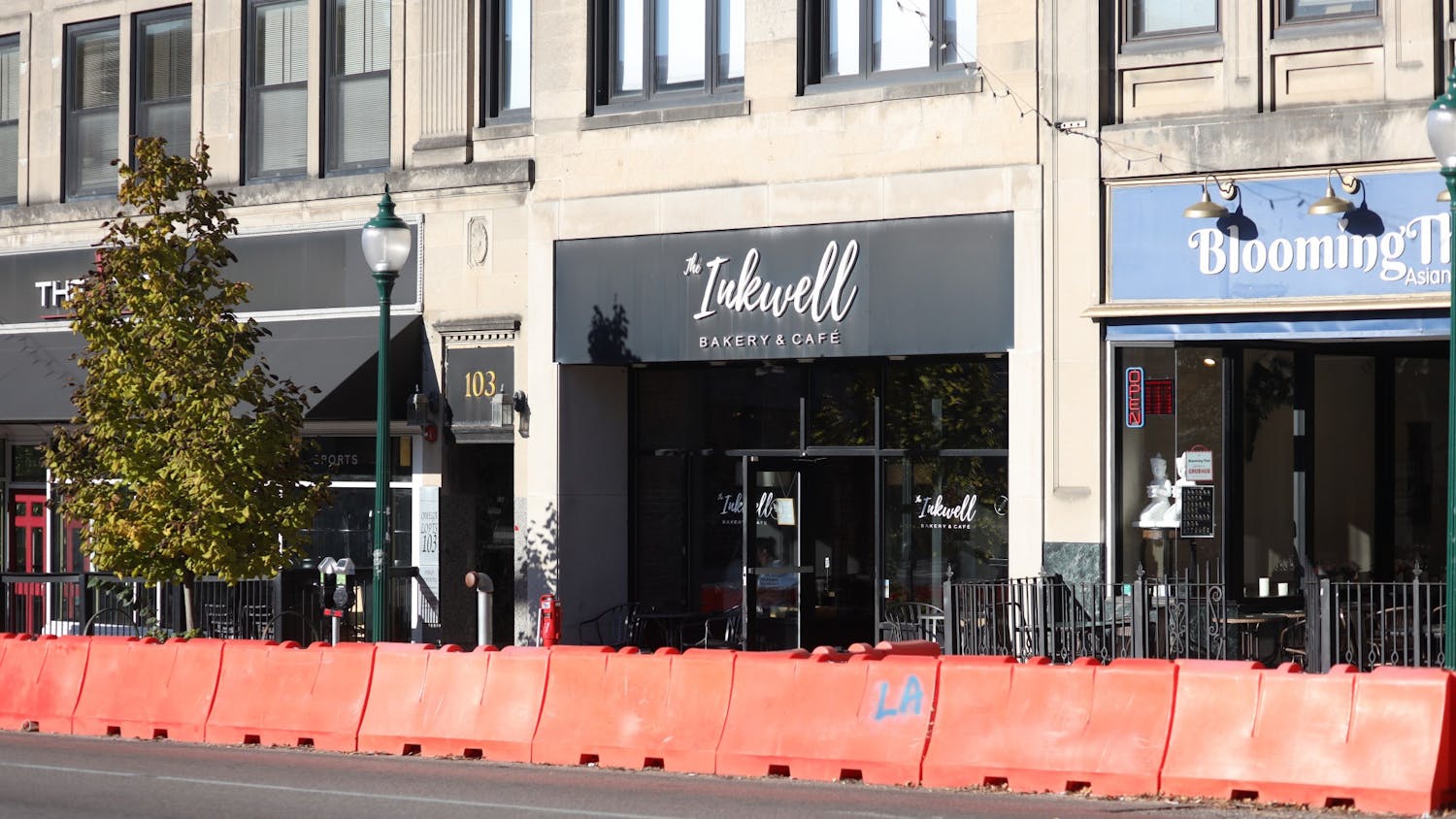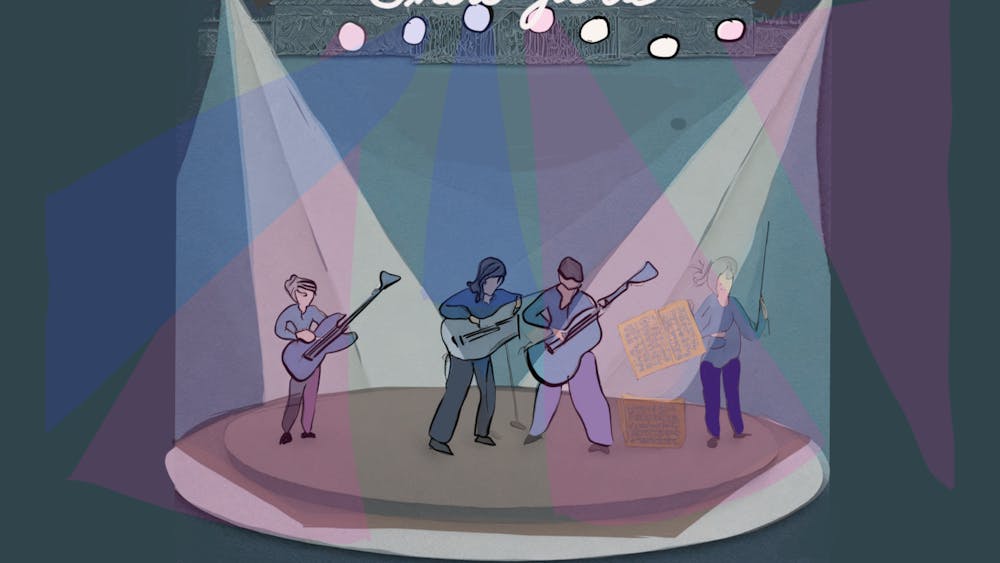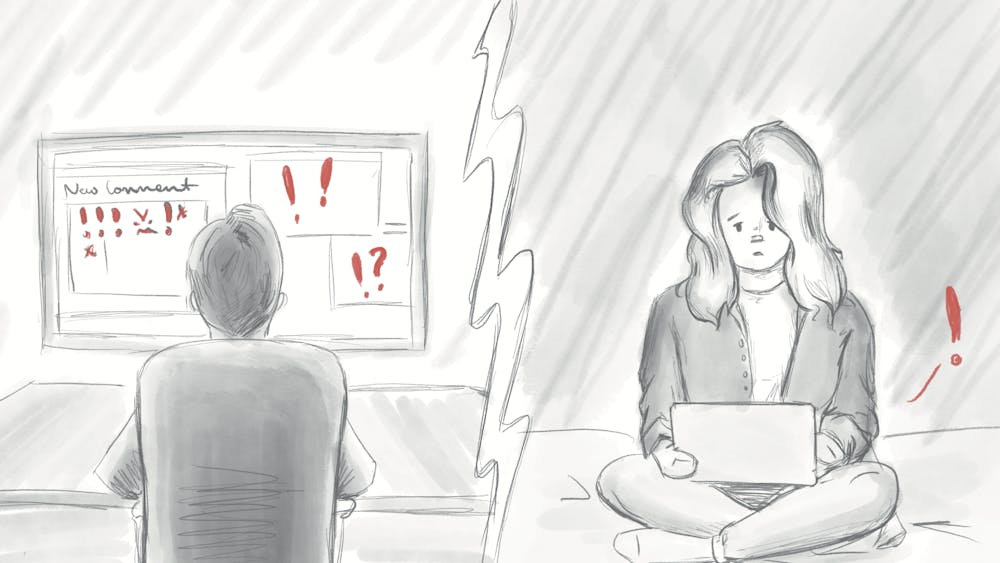In Juarez, Mexico, a town just south of the border to the U.S., 300 women have been murdered and/or raped during the past 10 years. Many of these women are still missing. More frightening is the fact that not one of these murder cases has resulted in a single conviction.\nWhen Eve Ensler wrote "The Vagina Monologues," a controversial and telling portrayal of the lives of women and their counterparts, she sought to address an international issue often overlooked in the media spotlight. She planned to shed light on the escalating crisis of violence against women.\n"The Vagina Monologues" has been performed at IU for the past five years. The show ran this weekend for three days, drawing very diverse crowds. Both women and men paid an $8 admission to see the show, whose proceeds are donated completely to local charities and V-Day not-for-profit organizations.\nV-Day is an effort to organize an international response to violence against women. V-Day is "a mission, a demand, a spirit, a catalyst, a process and a fierce, wild and unstoppable movement" held on Valentine's Day, according to the V-Day Web site, www.vday.org. This year, the V-Day spotlight is on the situation in Juarez. All of the profits for the production went to aid in the Juarez crisis and also to Middle Way House, a Bloomington-based women's crisis center.\nThe production, held in the Willkie Auditorium, featured a cast of 22 women -- including the directors and producers, Amanda Stevens and Leyna Wallace-Buntin. \n"I was originally just helping Amanda out, and then I just got so involved," Wallace-Buntin said. "I kind of fell into the role of producer by default."\nWorking on the production from the beginning, brainstorming and working fervently to put together an entire play in a little under a month-and-a-half, the duo held auditions in an unconventional manner. \n"They asked us to tell a story about ourselves, just a story about our lives," said senior Samantha Groff, a cast member. \nAfter hearing the women's stories, Stevens and Buntin chose cast members based on how well they believed the women could relate to the various monologues. After selecting the cast, they had only five weeks to prepare and rehearse the show. During the week, the cast members worked privately with their pieces and then met Sundays to rehearse as a group -- all while Stevens and Buntin dealt with issues of publicity, continual casting crises and financial support. \nThe staging of the performance was simple but effective and involving. Each monologue is performed in a solo format, occasionally allowing the cast to move about the stage, placing emphasis on the personalities of the women who are contained in the pieces. Also, the lighting design used red tones intermittently to differentiate between the more dramatic and lighter pieces. The cast wore red and black, matching the simplicity of the stage and set. \nYet, the strength of the play rests in the acting and the material, written by Ensler. The monologues are based off hundreds of interviews conducted by Ensler, ranging from an 82-year old woman from New York, a 6-year-old girl and a dominatrix. Ensler asked them about their lives, their histories and their vaginas. \nRanging from hysterical comedy to dark and effecting drama, the play speaks out about issues women think about but don't often talk about. \nIn a monologue titled "The Vagina Workshop," performed by freshman Cara Berg, a woman talks about discovering herself in a room full of other women on a little blue mat in an experience she denotes as "better than the Grand Canyon." \nIn another monologue, performed by junior Aran Mordoh, a dominatrix talks about the variety and pitch of moans, a useful sex instrument. In one of the highlights of the show, the entire cast of women piles on stage in a row and vocalizes what the dominatrix calls "the different types of moans," such as the "black girl moan," "the country girl moan," "the machine gun moan" and "the Jewish woman moan." All of these solo performances culminate into one, extraordinarily surprising and entertaining group ensemble deemed "the simultaneous triple orgasm moan."\nWhen the tone transforms to drama, the actresses are more than apt at conveying the complexities and hardships of the women they portray. Sophomore Angeleka Davis' monologue centers on the experiences of a black woman who grows up in a world where sex is not discussed and blame is on the shoulders of any girl who dares to think about "boys." The poignant piece chronicles the life of a young girl, from being raped by her father's friend, to having a deeply moving and tender sexual experience with a woman. \n"I could relate to the piece because I am a minority, and so was this woman," Davis said. "Her life was amazing, she was homeless and broken and yet she found strength." \nOther issues included the acid burning of more than 10,000 women in the Southern Asia, female genital mutilation and rape. These monologues were sobering and sad, leaving some in tears. \nOther pieces included "vagina facts." The "outrageous" vagina fact stated there are some states, including Texas and Ohio, where selling vibrators is illegal, yet guns are not. The piece by Buntin ended with the line, "We have yet to hear of a mass murder committed with a vibrator."\nThe show ended with Stevens imparting a last and moving letter from the writer, Ensler, on her experiences with "vagina warriors." \n"…I have heard the staggering stories of violence -- war rapes, gang rapes, date rapes … I have seen the worst. The worst lives in my body," writes Ensler. "But in each and every case, I was escorted, transformed and transported by a guide, a visionary, an activist, an outrageous fighter and dreamer. I have come to know these women (and sometimes men) as Vagina Warriors … They are directed by a vision, not ruled by ideology. They are citizens of the world. They cherish humanity over nationhood."\nThe piece ended with Stevens' tearfully vocalizing Ensler's last affirmative statement, "Every woman has a warrior inside waiting to be born. In order to guarantee a world without violence, in a time of danger and escalating madness, we urge them to come out."\n-- Contact staff writer Olivia Morales at ormorale@indiana.edu.
Play sheds light on women's plight
'Vagina Monologues' raises money for safety shelters
Get stories like this in your inbox
Subscribe





